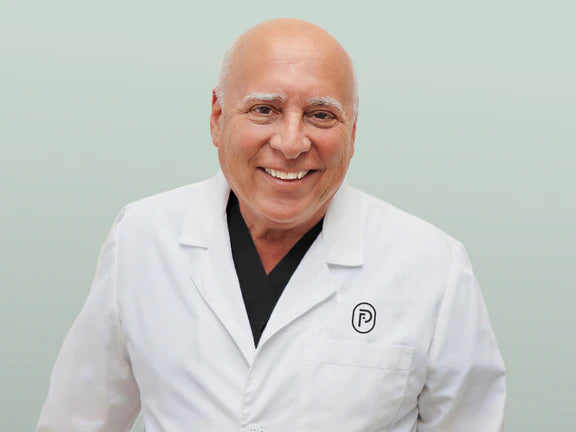
7 Advanced Strategies to Support Cardiovascular Health: A Holistic Approach
Share
By Joseph Purita, MD, Regenerative Medicine Pioneer
Science Advisory Board Member, humann®
As we age, supporting cardiovascular health becomes increasingly important. While traditional methods like a balanced diet and regular exercise are crucial, advancing science has introduced us to innovative strategies that can offer additional benefits. Here are seven advanced approaches you can adopt to support your heart health.
1. Support a Healthy Inflammatory Response
A healthy inflammatory response in the body is important to cardiovascular health support. As a result, it is important to incorporate whole foods into your diet that promote a healthy inflammatory response in the body - those include foods such as fatty fish, berries, and leafy greens. Supplements like curcumin (500-1000 mg daily), omega-3 fatty acids (1-2 grams daily), and resveratrol (150-500 mg daily) can also play a significant role. Additionally, humann’s Tart Cherry Gummies, and humann Professional's Uric Acid Balance and glyNOcalyx products can help support a healthy inflammatory response.
2. Support Mitochondrial Health
Mitochondria are the energy powerhouses of our cells, particularly abundant in the heart. To help support mitochondria health as we age, consider taking Coenzyme Q10 (100-200 mg daily), L-carnitine (500-2000 mg daily), PQQ (10-20 mg daily), and NAD precursors. humann's SuperBeets Heart Chews Advanced and SuperGrapes both feature a clinically researched dose of 100mg of CoQ10, making them excellent additions to your routine. Regular physical activity stimulates the creation of new mitochondria, while ensuring 7-9 hours of sleep each night is essential for their repair and maintenance.
3. Practice Intermittent Fasting
Intermittent fasting has been shown to improve insulin sensitivity and support a healthy inflammatory response—both of which are crucial for supporting cardiovascular health. Methods like the 16/8 approach (fast for 16 hours, eat within an 8-hour window) or the 5:2 diet (eat normally for five days, then restrict calories for two non-consecutive days) are popular options. Start gradually, stay hydrated, and listen to your body.
4. Stimulate Sirtuin Genes
Sirtuin genes are involved in regulating cellular health, aging, and longevity, helping protect against oxidative stress and promoting a healthy inflammatory response. You can stimulate them by consuming sirtuin activators like resveratrol-rich foods (red grapes, peanuts) and NAD+ precursors such as NMN or NR supplements (250-500 mg daily). Calorie restriction or time-restricted eating, along with high-intensity interval training (HIIT), are also effective ways to activate these genes.
5. Adopt a Heart-Healthy Diet
A diet rich in nutrients is fundamental for cardiovascular health. Focus on a Mediterranean or plant-based diet, increasing your intake of fruits, vegetables, whole grains, lean proteins, and healthy fats. Minimize the consumption of processed foods, added sugars, and excessive salt. Incorporate heart-healthy spices like turmeric, garlic, and ginger into your meals. Additionally, humann SuperBeets products can support circulation, healthy blood pressure, and overall heart health.
6. Engage in Targeted Physical Activity
Exercise is key to a healthy heart. Aim for 150 minutes of moderate-intensity aerobic exercise or 75 minutes of vigorous-intensity activity each week. Incorporate HIIT sessions 2-3 times weekly and engage in resistance training 2-3 times per week to focus on major muscle groups. Don't forget balance and flexibility exercises like yoga or tai chi, which can be done 2-3 times per week to round out your regimen.
7. Manage Stress and Prioritize Sleep
Chronic stress and inadequate sleep can take a toll on your heart. Incorporate stress reduction techniques like meditation and deep breathing exercises into your daily routine. Aim for 7-9 hours of sleep each night and maintain a consistent sleep schedule. To optimize your sleep environment, limit screen time before bed and ensure your bedroom is conducive to rest.
Incorporating these advanced strategies into your daily routine can support your cardiovascular health and overall well-being. By addressing key areas such as inflammation, mitochondrial function, and stress management, you’re not only taking steps to support your heart health, but also promoting a healthier, more vibrant life. Remember, small, consistent changes can lead to substantial long-term benefits. Whether it’s adopting a heart-healthy diet, practicing intermittent fasting, or engaging in targeted physical activity, these holistic approaches can empower you to take control of your cardiovascular health and thrive at any age.
About Dr. Joseph Purita, MD
Joseph Purita, MD is a board-certified orthopedic surgeon specializing in cellular and anti-aging therapies in Regenerative Medicine for over twenty years. College and Medical school training were obtained at Georgetown Univ. He has lectured extensively throughout the world on many topics. Dr. Purita was the inaugural president of the American Academy and Board of Regenerative Medicine. He is the medical director of Pur-Form and its network. Dr. Purita has also published several scientific articles and book chapters. Recently, he was appointed Regenerative Medicine Professor at the University of Max Plank, Indutuba, Brazil.
